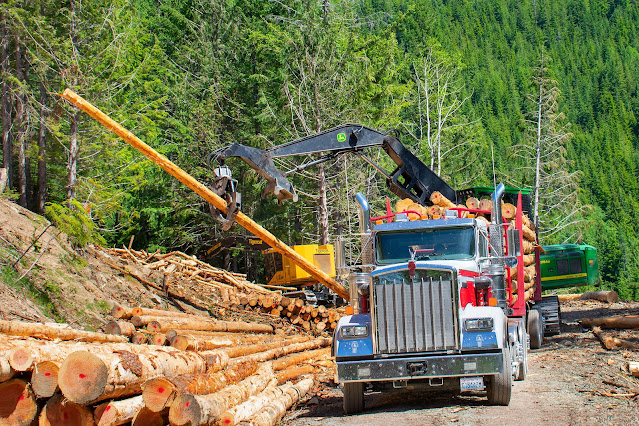The Role of Logging Companies in Mitigating Climate Change
Many people assume that
logging companies contribute to environmental damage and climate change. While
it's true that irresponsible logging can be harmful, it's crucial to recognize
that not all logging companies operate in this manner. Many are taking active
steps to mitigate the impacts of climate change, doing so through sustainable
practices and replanting efforts. With NH logging and similar
places, this is especially noticeable. Companies in these regions are applying
various methods and techniques that not only minimize harm to our planet but
also contribute positively to its well-being. In this article, we'll delve
deeper into how logging companies are actively combating climate change through
sustainable practices, replanting, and community engagement.
Why Trees Are More Than
Just Wood
We often think of trees
as a source of wood for our homes or paper for our offices, but they play a
much larger role in our ecosystem. Trees act as Earth's lungs, absorbing carbon
dioxide and releasing oxygen. They also offer habitat to various species of
animals and birds. Furthermore, forests regulate temperature and weather
patterns, making them indispensable in the fight against climate change. When
trees are cut down indiscriminately, all these benefits are lost. Therefore,
it's imperative that logging be carried out in a sustainable manner.
The Principles of
Logging
The concept of
controlled logging isn't new, but it's gaining more attention in recent times.
Sustainable logging means that companies are selective about the trees they cut
down, focusing on older trees while leaving the younger ones to grow. For
example, a logging company NH - based and others like them
also limit the number of trees removed from each section of the forest, thereby
reducing the overall impact on the ecosystem. By adhering to these principles,
forests are given time to recover, ensuring they continue to serve their
ecological functions.
From Logs to Everyday
Items
When trees are cut down, they serve various purposes. Wood is a versatile material used in furniture, construction, and paper products. What sets responsible logging companies apart is their commitment to using every part of the tree. Whether it's the branches, leaves, or even the bark, nothing goes to waste. Many Vermont logging companies are even adopting zero waste theory in their work and maximum efficiency for the timber they are cutting.
Community and
Scientific Partnerships
The fight against climate change isn't a solo endeavor; it requires collaboration. Logging companies often work with licensed foresters, local governments, and communities to develop better logging practices. Through these partnerships, companies can integrate scientific insights into their operations, improving their methods and minimizing environmental impact.
Final Note
The issue of climate change is pressing, and it requires a collective effort to mitigate its effects. Logging companies, especially in Vermont logging, are showing that it is entirely possible to have an industry that meets human needs while also respecting and nurturing the environment. If you're looking for an example of a company that strikes this balance, consider BW Timber Harvesting. They're not just taking resources from our planet; they're also giving back in meaningful ways, leading the charge in responsible and lawful logging. Visit their website- Bwtimberharvesting.com to avail of their services.




Comments
Post a Comment